Thinking about going Dutch? Find out what you need to know about visas, immigration, and more in the Netherlands with our guide. There are few countries quite like the Netherlands. With picturesque canal towns, cosy cafes and coffee shops, and a landscape dotted with windmills, it’s easy to see why so many internationals fall in love with the country.
However, you may need to apply for a Dutch visa if you’re moving to the Netherlands to live, study, work or join a relative or partner. This guide explains the conditions of the different types of Netherlands visas and residence permits. Sections include:
- Immigration in the Netherlands
- Who needs a Netherlands visa?
- Types of Netherlands visa
- Short-term Dutch visas
- Temporary Dutch visas
- Long-term Dutch visas
- Asylum seekers and refugees in the Netherlands
- Residence and citizenship in the Netherlands
- Arriving in the Netherlands
- Immigration appeals and complaints
- Useful resources
Immigration In The Netherlands
The Netherlands is one of the most densely populated countries in Europe. It has long been a multicultural society that has encouraged immigration and benefited from it economically and culturally. So much so that nearly a quarter of the Dutch population (24.6%) has a migrant background. This figure rises to over 50% in Amsterdam, Rotterdam, and The Hague.
Similar to many other EU countries, the Netherlands has a two-tier immigration system. EU/EFTA citizens have freedom of movement to travel or relocate to the Netherlands. Most non-EU/EFTA nationals, on the other hand, have to meet certain criteria to live, work, study or join the family in the Netherlands. The country is part of the Schengen Area, meaning many European citizens can travel there passport-free.
The Immigration and Naturalization Service (Immigratie- en Naturalisatiedienst – IND) deal with Netherlands visas and immigration.
Who Needs a Netherlands Visa?
EU/EFTA Nationals:
EU/EFTA citizens (EU plus Iceland, Liechtenstein, Norway, and Switzerland) don’t need a visa to visit, live, work or study in the Netherlands regardless of the length of stay. You will just need to have a valid ID. If you’re a citizen from one of these countries, you don’t need to register your stay with the IND unless you are bringing a family member travelling on a non-EU/EFTA passport.
For stays longer than three months, EU/EFTA citizens need to register with their local authority. They will then be entered into the Personal Records Database (Basisregistratie Personen – BRP) and will get a citizen service number (burgerservicenummer – BSN). This is the Dutch social security and tax number and is required for a lot of everyday aspects of local life, such as opening a bank account.
If you are an EU/EFTA citizen staying in the Netherlands for longer than three months but are not working, you will need to have adequate health insurance coverage and show proof that you have sufficient funds for you and any dependent family members to live on.
Non-EU/EFTA Nationals
If you are from a country outside the EU/EFTA, you may need a visa to enter and stay in the Netherlands. For short stays of up to three months, Netherlands visa requirements depend on nationality. Residents from some countries, such as the US, Japan, and Australia, can travel to the Netherlands for up to 90 days without a visa (or any 90 days within 180 days). Others will need to get a short-stay visa, but be sure to check individual country requirements before you travel.
For stays of longer than three months, non-EU/EFTA nationals will usually need a Dutch visa and/or residence permit relevant to the purposes of their stay. They may also need a work permit for employment.
Partners and Close Relatives of EU/EFTA Nationals
If you want to join a close relative of an EU/EFTA national who is living in the Netherlands but you are not an EU/EFTA national yourself, you also have the right to live and work in the Netherlands without a visa. This applies to spouses/partners, children/grandchildren aged under 21, and other relatives financially dependent on the EU/EFTA relative living in the Netherlands.
However, you will need to apply for verification against EU law to receive a certificate of lawful residence. This is a document that gives you similar rights to EU nationals and proves that you can live in the Netherlands without a visa.
UK Citizens After Brexit
Since 1 January 2021, the UK is no longer a member of the EU and its citizens can no longer benefit from free movement to EU countries including the Netherlands. UK nationals can travel to the Netherlands without a visa for short stay visits (up to three months, or any 90 days within 180 days). However, if you travel to the Netherlands on a UK passport, you will need a Dutch residence permit for long stays of over three months.
Types of Netherlands Visa
Would You Like To Apply For This Jobs/Sponsorship?
Enter Your Email Address HERE & You Will Receive a Notification About Your Application. If it shows "Subscribed" CLICK HERE to follow on Telegram for updatesYou can get the following types of visas for the Netherlands:
- Short stay visas, which are valid for 90 days (or a maximum of 90 days within 180 days)
- Temporary stay visas, which are usually valid for up to one year for specific purposes
- Long stay visas, which are for purposes such as working or joining family members and are for periods longer than one year
Return Visa
If you leave the Netherlands for a short period and don’t have a valid residence permit when you return, for example, i,f it e, expires when you are away, you may need a return visa to re-enter the country. The validity of the return visa depends on your circumstances but typically ranges from three months to a year. The fee for this visa is currently €161, or €47 for Turkish nationals and family members.
Short Stay Dutch visas
Short stay Netherlands visas are valid for a maximum of 90 days (or 90 days within 180 days). The main type of short-stay visa is the Schengen C visa which allows you to travel across the Schengen Area region. However, you will need to make sure you have a multi-entry rather than a single-entry visa if you plan to leave and then return to the Netherlands within this period. You can usually change a single-entry visa to a multi-entry one for €30 if you have a good reason for doing so. You need to apply for a short-stay visa at the Dutch embassy or consulate in your home country before you travel.
The three categories of short-stay visas in the Netherlands are the holiday and family visit (tourist) visa; the business visit visa; and the airport transit stopover visa.
Holiday and Family Visit Visa
This is the general short-stay tourist visa (Schengen C visa) for the Netherlands. You will typically need to apply in person at the Dutch embassy or consulate in your home country in the six months before travel. In addition to the completed application form, you will need to have:
- Valid passport/travel ID plus two passport photos.
- Details of your purposes for travelling to the Netherlands.
- Proof that you can financially support yourself during your stay, usually a bank statement showing that you have a minimum of €55 per day to cover costs. If you don’t have this, you will need to have a sponsor in the Netherlands who agrees to cover your costs.
- Proof of health insurance.
- Details of your accommodation, for example, your hotel reservation or the address of the people you will be staying with.
- Evidence that you will leave the Netherlands before your visa expires, for example, a return flight ticket back home.
You should receive a decision on your visa application within 15 days. If your visa is granted, you’ll usually need to collect it from the embassy or consulate.
The short-stay tourist visa is not a work visa. However, if you want to work at all in the Netherlands on this visa, you have to apply for a BSN and your employer will usually need to obtain a work permit from the Employee Insurance Agency (Uitvoeringsinstituut Werknemersverzekeringen – UWV).
Visa costs are €80, reduced to €40 for children aged 6–12. It is free for children under six. You cannot normally extend this Dutch visa. However, if you do have a valid extension reason and it is permitted you’ll need to pay €30.
Business Visit Visa
This is another variation of the Schengen C visa. It is very similar to the holiday and family visit visa in terms of requirements, costs, and application processes. The chief difference is regarding the purpose of the visit to the Netherlands which needs to be business-related. This can be:
- Work or business training
- Visiting the country to carry out a business transaction
- Attending a conference or seminar
- Taking part in a cultural or sports event
- Carrying out a diplomatic or political visit
- Working or volunteering on a temporary placement
- Completing a short-term study course
You will typically need a letter of invitation from a business or organization either based in the Netherlands or legally permitted to do business there. You will also need to provide evidence that you have a job or study placement in your home country, that you are self-employed and your business relates to your visit. If you are not funding your visit yourself, you will need proof that a third party (for example, your employer, university, or host organization) is covering the expenses of your trip.
Airport Transit Stopover Visa
This visa, known as the Schengen A visa, is for airport transit only. You may need this if you are stopping overnight in a Dutch airport en route to another country outside of the Schengen Area. It allows you into the international zone of a Dutch airport. If you are leaving the airport, even for a day, you will need a short-stay C visa.
You need to apply for an A visa at the embassy or consulate in your home country. The cost is the same as for the C visa.
Temporary Dutch Visas
Temporary Netherlands visas are available for stays that are typically between three months and a year. These visas are issued as residence permits in the Netherlands and can be for certain work, study, or exchange purposes. Some can be renewed, however, others cannot.
If you need a visa to enter the Netherlands, this takes the form of a provisional residence permit (machining tot voorlopig verblijf – MVV) which is valid for the same duration as the short-stay visa. You need to apply for this through the Dutch embassy or consulate in your home country before travelling. You will then exchange your MVV for a temporary one-year Dutch residence permit usually around two weeks after arriving in the Netherlands.
If you don’t need a visa to enter the Netherlands, you will need to apply for your temporary residence permit within three months of your arrival. However, you can choose to apply through the Dutch embassy or consulate in your home country before you travel if you prefer.
For all temporary visas and permits, you will need to provide a valid photo ID (plus biometric data for MVV applications) and evidence of a clean criminal record. You will also need to obtain health insurance within four months of arriving, as well as take a TB test unless you are from an exempt country.
Cultural Exchange Visa
This is a temporary visa for young people aged 18–30 who wish to experience and learn about Dutch culture. You must do this through a recognized exchange institution that acts as your sponsor during your stay and will apply for your residence permit (and MVV if required) on your behalf.
This visa/permit costs €320. It is non-renewable and you can only apply for it once. You need to stay with a family of two or more people while in the Netherlands and you can only do voluntary work.
In addition to the standard cultural exchange visa, there is the Working Holiday Programme (WHP) visa open to young people from nine different countries.
Au Pair Visa
This visa is for anyone aged 18-30 wanting to work as an au pair for a host family for up to a year. The conditions and costs for this visa/permit are very similar to the cultural exchange visa. You need to apply through a recognized au pair agency that will take care of the application for you.
You can work as an au pair for up to 30 hours a week on this visa. Your host family cannot be family members in the first, second, or third degree.
Work Experience Visa
You can come to the Netherlands for work experience as a trainee or apprentice for up to a year. To do this, you will need a registered sponsoring organization that will act as your employer and provide a work experience agreement and plan. Your sponsor will usually sort out your visa and permit requirements through the IND, although you can do this yourself if you wish.
The work experience visa/permit is a single permit that acts as a combined residence and work (tewerkstellingsvergunning – TWV) permit. If you need a visa to enter the Netherlands, you will initially have an MVV which you exchange for a single permit.
This visa/permit costs €320 and you can only work for your sponsoring employer for its duration.
Orientation Year Visa For Highly Educated Persons
This is a Netherlands visa/permit that allows the holder to live in the country for up to a year to look for work or start their own business. You must have completed an accredited study course to at least undergraduate degree level in the Netherlands or postgraduate level overseas.
If you’re applying from abroad and need a visa to enter the Netherlands, you can apply for the MVV and your temporary residence permit at the same time before you travel. Those applying from within the Netherlands can do it online or by post using an application form as long as they have a BSN.
This visa/permit costs €192. You can work freely in the Netherlands without a TWV on this permit.
Long Stay Dutch Visas
You will need a long-stay Netherlands visa if you come to the country to work, study or join family members long-term. As with the temporary Dutch visas, long-stay visas are residence permits that allow you to leave and return to the Netherlands for as long as they are valid.
The same general requirements apply for long-stay visas as for temporary visas, including TB testing and getting health insurance. Long stay permits have a maximum duration of 5 years.
Work Visa
If you come to the Netherlands for paid work purposes longer than three months, you will need what is known as a Single Permit (gecombineerde vergunning voor verblijf en arbeid – GVVA). This is a residence permit combined with a work permit (TWV). You may also need the MVV temporary permit if you need a visa to enter the Netherlands.
Typically, you will need a job offer first before getting your GVVA. Your employer usually applies for this and you then collect it from the IND around two weeks after arriving in the Netherlands. If you need an MVV, you will get this from the Dutch embassy or consulate in your home country. You may also need to meet minimum salary requirements which will depend on your job.
There are several different categories of Dutch work-related visas:
- General permit for most paid employment, which costs €320 and is valid for one year. It can be renewed for a maximum of five years.
- Highly skilled permit for high-level positions, costing €320 and valid for five years.
- Intra-corporate transfer permit, for employees of multinational firms transferred to the Netherlands. Valid for three years. The employer normally pays costs.
- Researcher permit, costing €192 and valid for five years.
- European Blue Card, which is another permit for high-skilled workers valid for four years. You can also become self-employed. Cost €320.
You can bring your spouse/partner and children aged under 18 with you on a GVVA.
Study Visa
If you are studying at a university in the Netherlands, you will need a residence permit if your study lasts longer than three months. You will also need an MVV if you need a visa to enter the Netherlands.
To qualify for a student residence permit, you will need to have an offer from a recognized educational institution in the Netherlands and meet the criteria for acceptance into the course. You will also need to prove that you can support yourself financially during your stay. Your university will apply for your residence permit (and MVV if necessary).
This permit costs €192 and is valid for the duration of your course, for a maximum of five years. You can work for a maximum of 16 hours per week during term time, and full-time in June, July, and August. Your employer will need a TWV for you.
Family Visa
Dutch immigration law allows family reunions. Relatives of EU/EFTA citizens living in the Netherlands can travel visa-free and apply to have the same rights as EU citizens (see above section). The following relatives can join non-EU/EFTA nationals living in the Netherlands:
- Spouse or partner
- Children aged under 18 (including adopted or foster children)
You will need a residence permit if joining a non-EU/EFTA family member, plus an MVV if you need a visa to enter the Netherlands. The cost of this is €192 for partners and €64 for children. The permit is valid for the same length as that of the relative you are joining. In most cases, you can work, but your employer will need to obtain a TWV.
Asylum Seekers and Refugees in the Netherlands
Anyone can apply for asylum in the Netherlands. The application is free. You are likely to be granted asylum if you are fleeing persecution or conflict from a country not on the Netherlands’ safe list and you don’t have an outstanding application (or have been granted a visa) elsewhere.
To apply for asylum in the Netherlands, you must:
- Visit an asylum application centre (aanmeldcentrum – AC) in Ter Apel (if you arrived by land) or Schiphol (if by air or sea) to make your application.
- Undergo a TB examination.
- Attend a reporting interview, unless you are an unaccompanied minor aged under 12.
- Stay in an asylum reception centre while your application is processed. This takes 6–9 days in most cases but can take up to six months in more complex situations. You will have to attend more detailed interviews during this time.
The IND will notify you of their decision once they have finished processing. If the application is successful, you will get a temporary asylum residence permit valid for five years. If your application is rejected, you will have to leave the Netherlands within 28 days. You can appeal the decision in the Dutch courts.
A temporary asylum residence permit gives you the right to work and be joined by family members (partners, children, or, in cases of unaccompanied minors, parents/guardians). You must also register with your municipal BRP, take out health insurance, and attend an integration course. After five years, you can apply for a permanent asylum permit for €192, valid for five years but renewable.
The Netherlands had 3,900 asylum applications in 2020, down from 19,600 in 2015.
Residence and Citizenship in the Netherlands
You can extend your Dutch residence permit for a maximum of 5 years unless you have a fixed-term one-year permit. You should do this through the IND three months from the expiry date. If your circumstances have changed and you no longer qualify for the permit you have (for example, you have a work-related permit but are no longer employed), you might be able to apply for a change of permit if you meet other criteria.
After five continuous years living in the Netherlands, you can apply for a permanent residence permit if you meet Dutch integration requirements, for example, sufficient knowledge of the Dutch language. You can also apply for Dutch citizenship after five years (or three years if you’re a spouse or registered partner of a Dutch citizen).
Dutch Residency for UK Citizens after Brexit
The UK left the EU on 31 December 2020. This has implications for UK citizens living in the Netherlands. If you are a UK national living in the Netherlands before 1 January 2021, or you are a family member of a UK national living in the country before this date, you can benefit from the terms of the Brexit Withdrawal Agreement. This means you will continue to enjoy much the same rights as an EU citizen.
However, you must apply for a new residence permit before 1 October 2021. This will be a temporary permit if you have been living in the Netherlands for less than five years, and a permanent permit if you’ve been in the country for more than five years. The cost of the permit is €64 for adults and €33 for children.
Arriving in the Netherlands
If you are staying in the Netherlands for longer than three months, you will need to register with your local authority records database (BRP) so that you can get your BSN. You may also want to consider the following to help settle yourself into Dutch life:
- Registering with local healthcare services
- Opening a Dutch bank account
- Sorting out utilities and telecommunications contracts
For more information, read our complete guide to the 10 things you need to do during your first week in the Netherlands.
Immigration Appeals and Complaints
The IND is the final decision-maker on applications for visas, permits, citizenship, and asylum. If you are unhappy with a decision, you can complain using an online form. Make sure you give full details about what you’re complaining about and what you want the outcome to be.
The IND has six weeks to respond to your complaint. If you are not happy with the complaint, you have two options:
- Contact the National Ombudsman (website in Dutch) to ask for a review of your complaint. You need to do this within one year of the decision.
- Take your complaint to the Petitions Committee of the Parliament (website in Dutch) or the Petitions Committee of the Senate (website in Dutch).
If you are appealing against an asylum decision, you should first send your appeal to the IND. You can then appeal to the court if you are unhappy with the final decision.
Useful Resources
- Immigration and Naturalization Service (Immigratie- en Naturalisatiedienst – IND) – deals with all issues concerning immigration, visas, citizenship and asylum
- Government of the Netherlands (Rijksoverheid) – Dutch government website
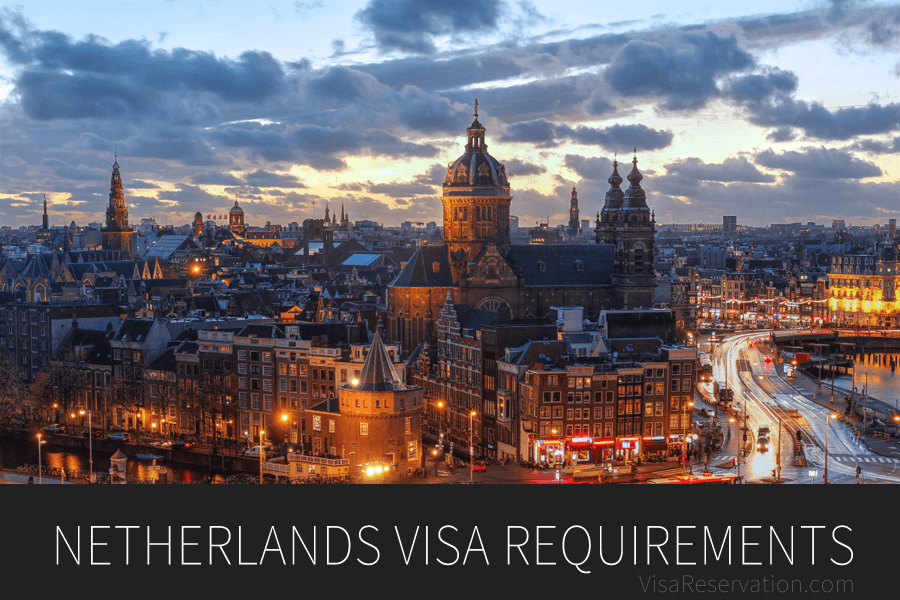

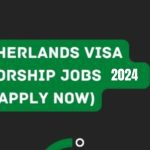
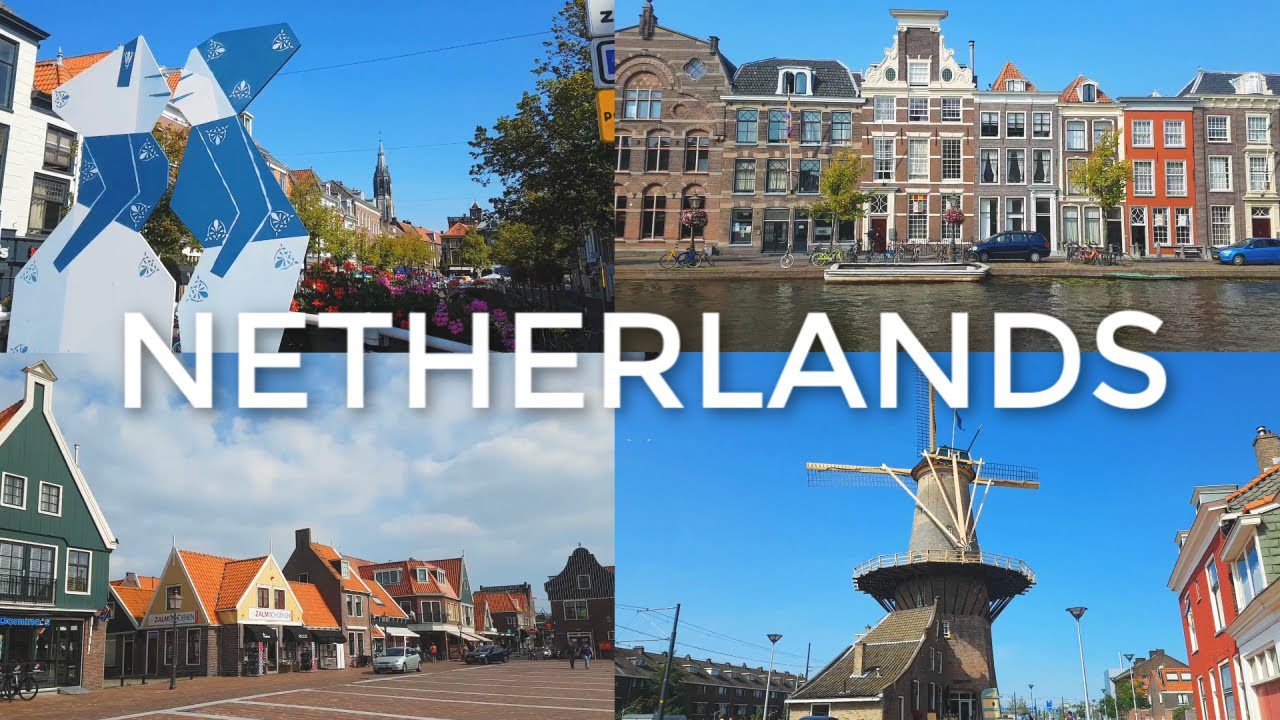

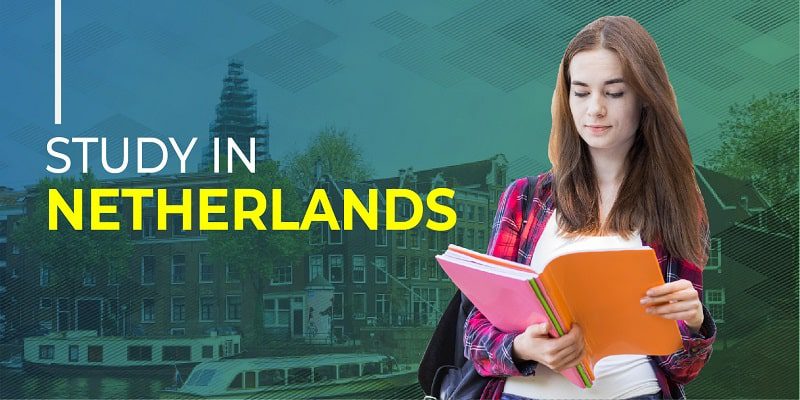
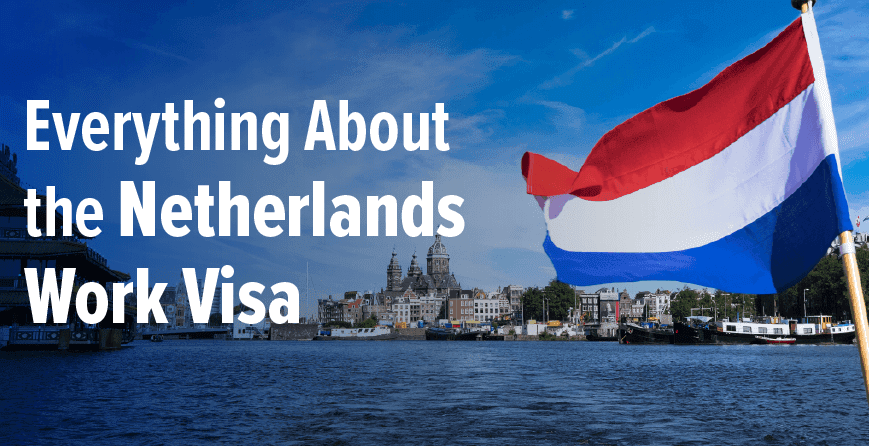
Very interesting how do i get Visa ?
I’m very interested about it